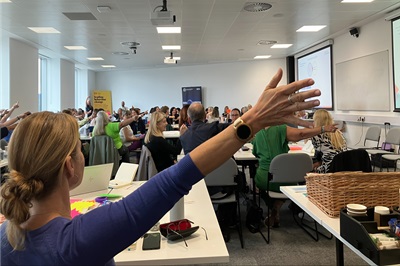Andy Maloney Blog: Neighbourhoods First: Transforming Local Health and Care Together
Leaders across different sectors are working hard to create real change in our communities. But complex systems — political, economic, and logistical — often make it hard to collaborate in a way that is inclusive, open, and long-lasting. These challenges can get in the way of setting strong policies that make the best use of our resources and improve people's lives.
In his 2024 report, Lord Darzi highlighted seven key areas for change:
- Secure funding that supports care closer to home
- Simplify and modernise how neighbourhood NHS services are delivered
- Reconnect with staff and give more power to patients
- Improve hospital productivity
- Use technology more effectively
- Support the national economy
- Reform structures to make the system work better
MIAA is part of the North West Collaborative, in partnership with the Centre for Management Development & Innovation, brough together leaders from health and social care, local government, the VCFSE sector, and workforce organisations to focus on developing Neighbourhoods as a key part of shifting care closer to home
Why Change Is Needed
The idea of moving services closer to where people live isn’t new. Back in 2018, the NHS looked at Accountable Care Organisations (ACOs). These aimed to build local partnerships between health, care, and public sector services to reduce health inequalities and deliver care in neighbourhood settings. While some progress has been made, big challenges still remain.
Some key issues:
Darzi’s report (2024) shows that between 2006 and 2021, NHS hospital spending actually increased — from 47% to 58%.
Local government is under pressure. The report Powering Up the North West (2025) outlines seven major challenges, including improving services for children and adults, building more homes, better transport, and closer NHS–local government collaboration. Many of these overlap with NHS goals — which means solving them together could support stronger neighbourhoods and better infrastructure.
ICBs (Integrated Care Boards) have a clear mission. As described in the new “Model ICB Blueprint,” they aim to improve population health and ensure consistent, high-quality services. ICBs lead long-term strategies and aim to make the most of available resources.
A Clear Policy Direction — But a Complex Task
Government and NHS policies support population health approaches, including more investment in neighbourhoods and shifting services away from hospitals. But while terms like "left shift" sound simple, the real challenge is far more complex.
This isn’t just about relocating services. It’s about rebuilding systems to:
- Tackle health inequalities
- Use resources more efficiently
- Improve outcomes for all communities
To do this, we need:
- Honest conversations with communities about what they need
- Smarter use of technology
- Joined-up leadership from NHS and local government
Leading Together
The recent North West Collaborative Hackathon and Open Space session, held at Liverpool John Moores University, brought together neighbourhood leaders from across sectors to rethink how care can truly shift closer to home. Teams from across the North West collaborated on real-world challenges such as developing the next stage of neighbourhood working, taking a proactive approach to frailty, improving access to non-emergency care, and reducing food-related ill health.


To continue building on this momentum, the Collaborative is offering a further learning opportunity through its Leading for system change programme, which begins on 24th September.
